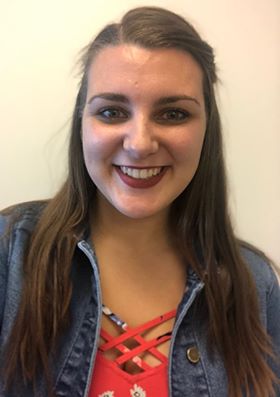Celebration of Scholars
Blasting Off with Phages: Bacteriophage Study in a Novel Environment
 Name:
Owen Lewer
Name:
Owen Lewer
Major: Biology
Hometown: Waseca, MN
Faculty Sponsor: Deborah Tobiason
Other Sponsors: Henle, Andrea
Type of research: Independent research
Funding: WSGC
 Name:
Claire Pfeffer
Name:
Claire Pfeffer
Major: Biology
Hometown: Madison, WI
Faculty Sponsor: Deborah Tobiason
Other Sponsors: Henle, Andrea
Type of research: Independent research
Funding: WSGC
Abstract
Currently, undergraduates across the country are able to get first-hand research experience through the Phage Hunters program which is a part of the Howard Hughes Medical Institute Science Education Alliance. Through this course, students isolate a novel bacteriophage and characterize it through a variety of techniques. The purpose of this study is to pilot an extension of the current program in which students would be introduced to Space Biology by testing the stability of bacteriophages in the space environment on the International Space Station (ISS). Understanding bacteriophage stability is necessary if they are to be used in the future on spaceflights for biocontrol and/or phage therapy. Different phages have been shown to have various levels of stability under various temperatures, but the reason for varying stability is unknown. Two Mycobacteriophages from distinct clusters are being tested as possible candidates for studies on the ISS. Preliminary results have shown that both Mycobacteriophages Cerasum and GreaseLightnin show high stability at both 4°C and 30°C making either phage a possible candidate to send to the ISS. Further analysis on their lysogens have revealed that the phages have different tendencies to select lytic or lysogenic life cycles.Submit date: March 25, 2019, 6:14 p.m.
